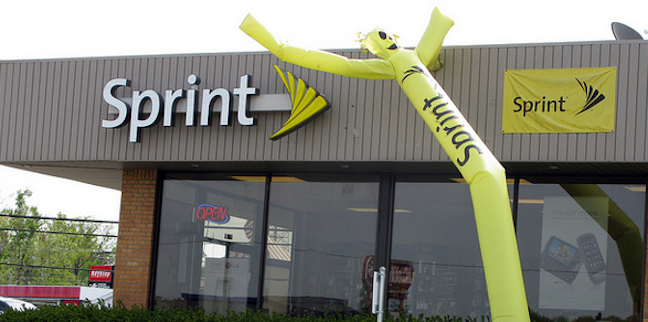FCC Reportedly Planning To Fine Sprint $105M For Wireless Bill-Cramming
Just two months after the Federal Communications Commission imposed its largest fine on AT&T for overcharging consumers using a practice known as “bill-cramming,” the regulator is reportedly poised to saddle Sprint with the same $105 million fine for similar practices.
Citing unnamed officials with the FCC, The National Journal reports that the agency is in the process of finalizing an enforcement action that would penalize Sprint for knowingly charging customers for third-party services they did not approve.
Like previous cramming allegations against T-Mobile and AT&T, the charges Sprint allegedly tacked on to bills were for unasked-for and unauthorized subscriptions for things like ringtones and text messages containing love tips, horoscopes, and “fun facts.”
While it’s currently unclear just how much was added to Sprint customers’ tabs, previous carriers were found to have billed consumers hundreds of millions of dollars in charges for third-party companies.
The National Journal reports that all five FCC commissioners are reviewing the proposed fine, but have not voted to take action yet. It is unclear whether or not Sprint and the FCC are still engaged in settlement talks.
The FCC declined to comment on this story.
If the FCC moves forward with the speculated $105 million fine, it would mark the third time this year a major wireless carrier has faced action regarding bill-cramming.
In October, AT&T entered into a deal with the Federal Trade Commission, FCC and attorneys general from 50 states and the District of Columbia to pay $105 million to settle allegations that it profited off of bill-cramming.
The FTC claimed that AT&T kept about 35% of all the fees it took in from these charges; in some cases, the company earned upwards of 40% of the revenue from the third-party charges.
While it’s believed that all wireless providers have allowed bill-cramming of some sort, the settlement with AT&T was the first regulators had reached with any of the country’s mobile phone carriers.
Back in July, the FTC sued T-Mobile for similar practices, accusing the company of making hundreds of millions of dollars off of premium text-messaging premium.
T-Mobile’s response to that lawsuit was to claim that it shouldn’t be sued because it stopped allowing these illegal charges.
The FTC alleged that T-Mobile received anywhere from 35-40% of the total amount charged to consumers for subscriptions (mostly $9.99/month) for things like “flirting tips, horoscope information or celebrity gossip.”
Continued allegations and action against carriers regarding bill-cramming may not come as much surprise after a Senate Committee on Commerce, Science and Transportation report released in July found that wireless providers often turned a blind eye to cramming because it resulted in billions of dollars in revenue for carriers.
FCC Plans Massive Fine of Sprint for Bogus Charges [The National Journal]
Want more consumer news? Visit our parent organization, Consumer Reports, for the latest on scams, recalls, and other consumer issues.


